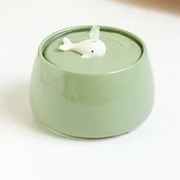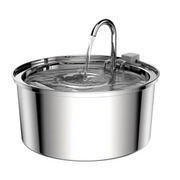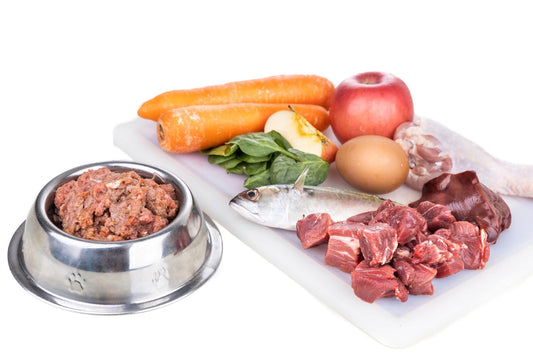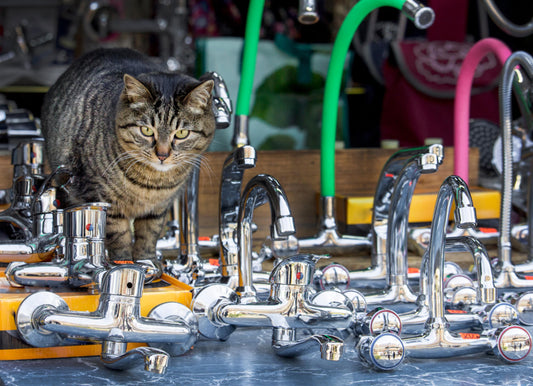Can Cats Eat Avocado? Assessing the Potential Benefits and Hazards
Cat Water Fountains Australia
Share This Article
| Summary: No. While avocados offer numerous benefits in human diets, they contain a toxin called persin that can be detrimental to animals, including cats. Persin is primarily present in the skin, leaves, and pit of avocados, and excessive consumption of these parts can lead to health problems in cats. |
When it comes to the question of whether cats can safely consume avocado, it's important for cat owners to be aware of the potential risks and benefits associated with feeding their feline companions this fruit. While avocados offer a range of nutritional benefits for humans, the same may not hold true for cats. Let's delve into the topic and explore seven factors at play.
1. Avocado and Its Nutritional Composition
Avocados are known for their rich nutritional profile, boasting essential vitamins, minerals, and healthy fats. They contain vitamins such as vitamin K, vitamin E, and vitamin C, along with minerals like potassium and magnesium. Avocados also provide monounsaturated fats, which are considered heart-healthy. However, it's crucial to note that cats have unique dietary requirements that differ from humans.2. Toxic Components in Avocado
One of the primary concerns when it comes to cats and avocado consumption is a substance called persin. Persin is present in avocados and can be toxic to certain animals, although cats tend to be less susceptible to its effects compared to other species. Nevertheless, it's important to exercise caution and understand that individual sensitivities may vary among cats.3. Avocado Consumption and Cats
Feeding avocados to cats carries specific risks that should not be overlooked. Cats may experience gastrointestinal upset, including vomiting and diarrhea, if they consume significant amounts of avocado flesh or the avocado pit. Furthermore, the high fat content in avocados can potentially lead to pancreatitis, a condition characterized by inflammation of the pancreas. These risks make it important to consider alternative food options for cats.4. Allergic Reactions and Sensitivities
Just like humans, cats can develop allergic reactions to certain foods, including avocados. If a cat has an avocado allergy, it may exhibit symptoms such as itching, skin rashes, swelling, and difficulty breathing. If any of these signs are observed after avocado consumption, immediate veterinary attention is necessary.5. Benefits of Avocado for Cats
While avocados offer several health benefits for humans, there is limited scientific evidence supporting similar benefits for cats. Cats have specific nutritional requirements that are best met through a balanced diet formulated specifically for their needs. Therefore, it is recommended to focus on cat-friendly food options that are safe and nutritionally appropriate.6. Safe Alternatives for Healthy Feline Nutrition
To provide cats with a well-rounded diet, it is advisable to incorporate appropriate cat-friendly fruits and vegetables. Some safe alternatives that can be included in a cat's diet are small amounts of steamed or pureed vegetables like carrots, green beans, or peas. Additionally, fruits such as small pieces of watermelon or cantaloupe can be offered as occasional treats.
7. Monitoring and Observation
After any exposure to avocado, it's crucial to monitor cats for any adverse reactions or symptoms. If a cat exhibits signs of gastrointestinal distress, such as prolonged vomiting or diarrhea, or if there are concerns about an allergic reaction, immediate veterinary assistance should be sought.In conclusion, while avocados can offer nutritional benefits for humans, the same cannot be said for cats. The potential risks associated with avocado consumption, including gastrointestinal upset, pancreatitis, and the possibility of allergic reactions, outweigh any potential benefits. It is important to consult with a veterinarian before introducing any new food into a cat's diet to ensure optimal nutrition and overall health.
Note: This article is intended for informational purposes only and should not be considered as veterinary advice. If you have specific concerns or questions about your cat's diet, it is recommended to consult with a qualified veterinarian.










